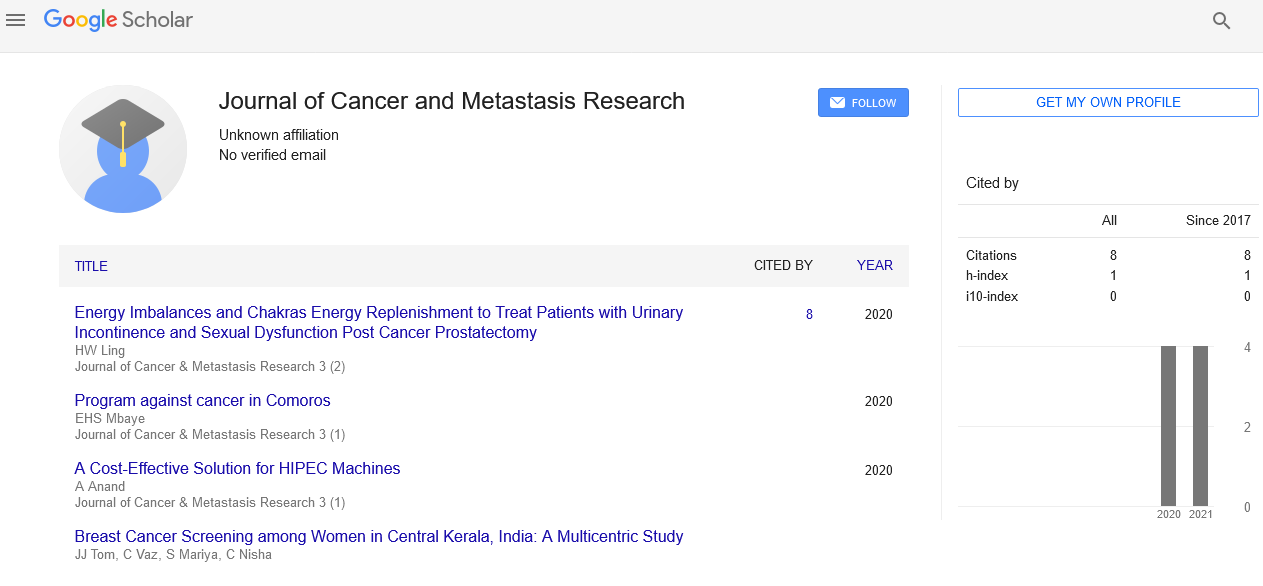
Sign up for email alert when new content gets added: Sign up
Abstract
Nanotechnology in the development of small and large molecule tyrosine kinase inhibitors and immunotherapy for the treatment of HER2-positive breast cancer
Author(s): Victor Ejigah, Bharathi Mandala and Emmanuel O Akala*The HER2 receptor tyrosine kinase is a member of the epidermal growth factor receptor family which includes EGFR, HER3 and HER4. They are known to play critical roles in both normal development and cancer. A subset of breast cancers is associated with the HER2 gene, which is amplified and/or overexpressed in 20-25% of invasive breast cancers and is correlated with tumor resistance to chemotherapy, Metastatic Breast Cancer (MBC) and poor patient survival. The advent of receptor tyrosine kinase inhibitors has improved the prognosis of HER2-postive breast cancers; however, HER2+MBC invariably progresses (acquired resistance or de novo resistance). The monoclonal antibody-based drugs (large molecule TKIs) target the extracellular binding domain of HER2; while the small molecule TKIs act intracellularly to inhibit proliferation and survival signals. We reviewed the modes of action of the TKIs with a view to showing which of the TKIs could be combined in nanoparticles to benefit from the power of nanotechnology (reduced toxicity, improved solubility of hydrophobic drugs, long circulation half-lives, circumventing efflux pumps and preventing capture by the reticuloendothelial system (mononuclear phagocyte system). Nanotherapeutics also mediate the synchronization of the pharmacokinetics and biodistribution of multiple drugs incorporated in the nanoparticles. Novel TKIs that are currently under investigation with or without nanoparticle delivery are mentioned, and nano-based strategies to improve their delivery are suggested. Immunotherapies currently in clinical practice, clinical trials or at the preclinical stage are discussed. However, immunotherapy only works well in relatively small subsets of patients. Combining nanomedicine with immunotherapy can boost therapeutic outcomes, by turning “cold” non-immunoresponsive tumors and metastases into “hot” immunoresponsive lesions.
Full-Text | PDF




